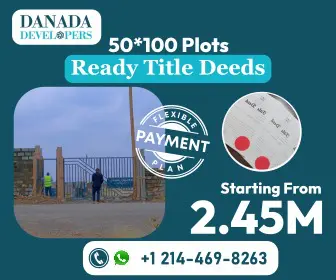
Ever thought about what life will look like when you’re 60? Retirement may seem like a distant reality when you’re in your 30s, but trust me, time flies.
One day, you’ll wake up and realize retirement is just around the corner. The big question is: How do you secure your future? Should you save money in the bank, or is investing in real estate the smarter move?
If you’ve been wondering about this, you’re not alone. Many young professionals struggle to decide between saving and investing. While both have their place, one will set you up for financial security better than the other.
Key Takeaways
✅ Savings are essential for emergencies, but they lose value over time due to inflation.
✅ Real estate investment grows over time, offering both appreciation and passive income.
✅ Starting early and being consistent will help you build long-term wealth.
✅ A balanced approach—saving for emergencies and investing for growth—is ideal.
1. Why Start Planning for Retirement Now?
Most of us don’t think much about retirement in our 30s. After all, it’s three decades away! But here’s the thing: retirement isn’t about getting old; it’s about becoming financially free. The sooner you start planning, the easier it will be.
The Power of Time and Compound Growth
Let’s say you start investing KES 10,000 per month in a real estate project that appreciates at an average of 10% per year. In 30 years, that investment could be worth millions. Compare that to just saving KES 10,000 per month in a bank at a 2% interest rate—you’d barely keep up with inflation.
Moral of the story? Time is your greatest asset. The earlier you start, the less effort you’ll need later.
Have you been searching for a serene residential area away from the hustle of the city? Username Investments is excited to introduce Matuu Sunrise Estate a perfect escape to peaceful and quiet living. For only KES. 250,000 buy land and plots for sale in Matuu Machakos County.
2. Is Saving Money a Good Retirement Plan?
We’ve all been told to save for a rainy day, and that’s true—to an extent. Having money set aside for emergencies is crucial. But is saving enough to secure your retirement?
- The Pros of Saving for Retirement
Emergency cushion – If unexpected expenses arise, you’ll have funds available. - Liquidity – Savings are easily accessible when needed.
- Low risk – Unlike investments, savings are stable and predictable.
The Cons of Relying Solely on Savings
- Inflation eats away your money – The cost of living doubles every 20-30 years, meaning KES 1M today will buy much less in the future.
- Bank interest rates are low – Most savings accounts offer 3-5% interest, while inflation is around 6-7%. That means you’re actually losing money over time.
- No wealth growth – Your savings remain stagnant, unlike investments that grow over time.
Final Thought on Savings
Saving is necessary for emergencies, but it’s not enough for retirement. You need something that beats inflation and grows your money—and that’s where real estate comes in.
3. Why Real Estate is a Better Retirement Plan
Let’s talk about real estate investment—one of the most reliable ways to build long-term wealth. If you buy a piece of land today for KES 600,000, in 20 years, it could be worth millions. That’s capital appreciation in action.
Benefits of Investing in Real Estate
- Appreciation – Property values increase over time. Historically, real estate appreciates by 6-10% annually in many markets.
- Passive Income – Rental properties provide monthly cash flow, unlike savings that just sit there.
- Inflation Protection – Real estate rises in value along with inflation, unlike money in the bank.
- Tangible Asset – Unlike stocks, real estate is a physical asset that won’t disappear overnight.
Types of Real Estate Investments for Retirement
🏡 Buying rental properties – Earn a passive income from tenants.
🏢 Commercial real estate – Rent out office spaces for higher returns.
🌱 Buying land for appreciation – Hold it and sell it later at a higher price.
🏠 Flipping houses – Buy, renovate, and sell for profit.
Unlike saving, real estate works for you while you sleep. Even if you stop working, your rental income continues.
Have you been looking to invest in the growing Ngong Town? Username Investment Ltd. is pleased to welcome you to Terra Gardens Ngong, a serene project that guarantees a high return on investment. Terra Gardens Ngong combines natural beauty, modern convenience, and long-term value. For only KES.795,000, buy these well serviced ⅛ Acre plots for sale in Kimuka Ngong and watch your investments soar!
4. Savings vs. Real Estate: Which One Wins?
Let’s compare both options side by side:
| Feature | Savings | Real Estate Investment |
| Wealth Growth | ❌ No growth (low interest rates) | ✅ Appreciates over time |
| Inflation Protection | ❌ Money loses value | ✅ Property prices rise with inflation |
| Passive Income | ❌ No income, only stored cash | ✅ Rental income provides cash flow |
| Liquidity | ✅ Easy to access | ❌ Harder to sell quickly |
| Retirement Security | ❌ Might not be enough | ✅ Provides financial freedom |
Verdict:
✅ Winner: Real Estate Investment for long-term security and income.
While saving is necessary, relying on it alone is risky. Real estate builds true financial independence.
5. How to Start Investing in Real Estate in Your 30s
You don’t need millions to start in real estate. Here’s a practical plan:
Step 1: Start Small
Look for affordable plots in growing areas.
Consider joint investments with family or friends.
Step 2: Save and Invest Consistently
- Instead of keeping all your money in the bank, invest at least 30% of your income into real estate.
- Use a money market fund to grow your savings while preparing for property investment.
Step 3: Diversify Your Investments
- Mix land investments (for appreciation) with rental properties (for cash flow).
Step 4: Be Patient
- Real estate takes time to grow—invest early and wait.
- Don’t rush to sell property unless necessary.
Conclusion: The Best Retirement Plan? Invest, Don’t Just Save!
The bottom line is clear: while savings provide short-term stability, real estate offers long-term financial security. A well-planned real estate investment can fund your entire retirement through appreciation and passive rental income.
If you start today, 30 years from now, you’ll be financially free, living comfortably, and enjoying life on your terms.
📢 Disclaimer: The information and figures provided in this article are for educational purposes only and should not be considered financial or investment advice. Always conduct your own research and consult with a professional financial advisor before making any investment decisions.
FAQs (Frequently Asked Questions)
1. Is it better to invest in real estate or save money for retirement?
Investing in real estate is better because it grows in value and generates income, while savings lose value over time.
2. Can I start investing in real estate with little money?
Yes! You can start small by buying affordable land, pooling funds with friends, or getting a mortgage.
3. What type of real estate is best for retirement?
Rental properties are ideal because they provide consistent passive income. Land is also great for long-term appreciation.
4. How much of my income should I invest in real estate?
Experts suggest investing at least 30% of your income while maintaining an emergency fund.
5. What if I don’t have enough money to buy property?
You can explore real estate investment trusts (REITs) or partner with others to buy property.







